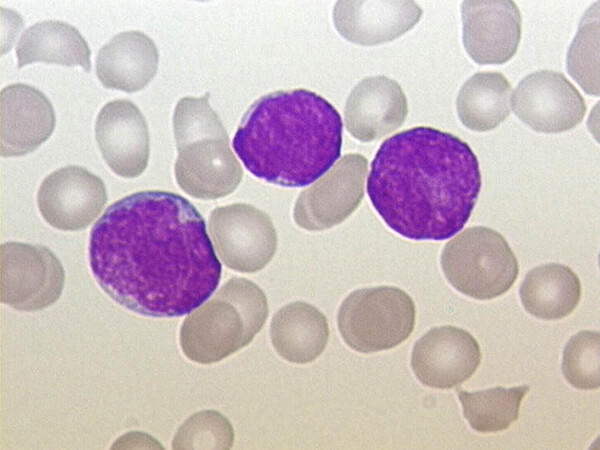FDA Grants Full Approval to Blinatumomab for Acute Lymphoblastic Leukemia
, by NCI Staff
On July 12, the Food and Drug Administration (FDA) changed its accelerated approval of blinatumomab (Blincyto®) for some patients with acute lymphoblastic leukemia (ALL) to a full approval and expanded the approved indications for its use.
A type of immunotherapy known as a bispecific monoclonal antibody, blinatumomab received accelerated approval in December 2014 for children and adults with B-cell ALL that had returned after earlier treatments (relapsed) or failed to respond to standard therapies at all (refractory). The approval covered only patients whose tumor cells did not have a genetic alteration known as the Philadelphia chromosome.
Under the change to a full approval, however, FDA expanded the indication for blinatumomab to include patients with Philadelphia chromosome–positive ALL.
Accelerated approvals are based on clinical trial results that strongly suggest a therapy provides a real clinical benefit for patients in cases where there is a clinical need. The initial accelerated approval was based on findings from a single-arm phase II trial in which nearly one-third of patients experienced a complete remission.
The change to a regular approval for blinatumomab was based on results from a randomized phase III clinical trial called TOWER that was funded by the drug’s manufacturer, Amgen. In the phase III trial, the median overall survival of patients treated with blinatumomab was nearly twice as long as that of patients treated with chemotherapy regimens that are commonly used in patients with relapsed or refractory B-cell ALL.
A March 2017 Cancer CurrentsCancer post described details of the trial and its potential impact on patient care and future research involving blinatumomab.
Expanding the approved indication for blinatumomab to include people with Philadelphia chromosome–positive disease was based on results from a single-arm study, also funded by Amgen, in which more than one-third of patients achieved a complete remission.
